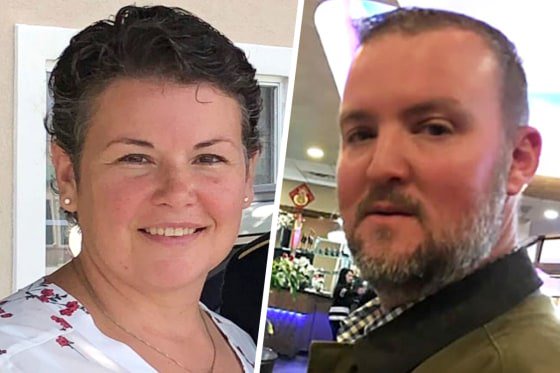Murder trial in husband’s insulin death zeroes in on arson, murder plot allegations from wife’s past
CHICAGO:
The high-profile murder trial of a Midwestern woman accused of killing her husband with a fatal insulin overdose has taken a dramatic turn as prosecutors unveiled disturbing allegations from her past — including an earlier arson investigation and a suspected murder conspiracy. The courtroom drama, unfolding in front of national media, has drawn widespread attention for its mix of medical evidence, personal betrayal, and long-hidden secrets.
The defendant, 42-year-old Emily Carter, stands accused of administering a lethal dose of insulin to her husband, Daniel Carter, a 45-year-old construction contractor who was found dead in their suburban home two years ago. Authorities allege that Emily deliberately injected Daniel while he was asleep, staging the death to look like a medical emergency linked to his diabetes.
Daniel’s sudden passing initially appeared natural until toxicology reports revealed extremely high insulin levels inconsistent with routine use. Prosecutors argue that the discovery of unused syringes, text messages, and recent financial records proves Emily’s direct involvement in what they call a calculated killing for financial gain.
Prosecutors Present a Pattern of Deception
During this week’s testimony, state attorneys shifted their focus from medical forensics to the defendant’s history of suspicious incidents, claiming that the insulin killing fits a broader pattern of manipulation and greed.
Assistant District Attorney Carla Jenkins told jurors that Emily Carter “had a history of solving her problems with fire, fraud, or force,” alleging that her actions leading up to Daniel’s death were not isolated. Jenkins referred to a 2015 house fire at Emily’s previous residence in Springfield, where investigators suspected arson but could not prove it. The incident, according to prosecutors, was part of an earlier attempt to collect insurance money after financial struggles.
“This is not the first time the defendant benefited from tragedy,” Jenkins said. “She has shown the same behavior — planning, deception, and financial motive — in each chapter of her adult life.”
Prosecutors also revealed witness statements from a former friend who claimed Emily once discussed how insulin “couldn’t be traced easily” in overdose cases, a statement the defense dismissed as gossip and speculation.
Defense Counters With Claims of Grief and Misinterpretation
Defense attorney Michael Hughes painted a vastly different picture of Emily, describing her as a grieving widow and devoted caregiver wrongly accused because of circumstantial evidence. He argued that Daniel Carter’s diabetes was poorly managed and that fluctuating insulin levels were common in his medical history.
Hughes told the jury that the prosecution’s story relies on “half-truths and assumptions,” emphasizing that there was no eyewitness, confession, or forensic evidence proving Emily intentionally injected the fatal dose.
“They have built a theory on speculation and recycled rumors from her past,” Hughes said. “Emily Carter is not a murderer; she is a woman whose life has been destroyed twice — first by her husband’s death, and now by this accusation.”
The defense suggested that Daniel may have accidentally overdosed or taken a double dose during a period of stress. They also questioned the accuracy of the toxicology process, calling an independent medical expert to testify that sample degradation could have altered insulin readings.
Past Allegations Resurface
Adding to the tension, prosecutors called to the stand retired detective Laura Simmons, who had investigated the 2015 house fire linked to Emily Carter. Simmons testified that although no charges were filed, investigators noted “several inconsistencies” in Emily’s account of the event and that the fire originated near areas with accelerant traces.
The prosecution also revisited a 2017 domestic dispute, during which Emily’s former boyfriend accused her of threatening him after a breakup. Though no charges were pursued, prosecutors argued that the incident highlighted her volatile temperament and willingness to intimidate those close to her.
The defense objected repeatedly, claiming the state was unfairly portraying unproven allegations as fact. Judge Robert Daniels overruled several objections but reminded jurors to treat such testimony only as context and not as evidence of guilt in the current case.
Financial Motive and Insurance Questions
Court documents show that Emily Carter was the primary beneficiary of her husband’s $500,000 life insurance policy, taken out six months before his death. Investigators found that the couple had faced mounting debt and that Emily had researched insurance payout timelines online just days before the fatal overdose.
Prosecutors say these details point toward a clear financial motive, reinforced by bank transfers made to her account immediately after the insurance payment cleared. However, the defense argued that Emily used the funds to settle funeral costs and outstanding loans, not for personal enrichment.
Expert Testimonies Divide the Courtroom
Medical experts have offered contrasting views on how quickly insulin can act as a poison and whether an accidental overdose is possible for an experienced diabetic patient. The prosecution’s endocrinologist testified that Daniel’s blood insulin concentration was “extraordinarily high” and could not have resulted from self-administration.
In contrast, the defense’s expert said that stress, delayed metabolism, and poor record-keeping of insulin doses could create confusion about timing, leaving reasonable doubt about intent.
Public Reaction and Ongoing Trial
The case has sparked heated debate across social media and television talk shows, with many questioning whether Emily Carter is a manipulative killer or a victim of prosecutorial overreach. True-crime followers have drawn comparisons to previous cases where insulin overdoses were weaponized due to their subtle and hard-to-trace nature.
Legal analysts suggest the outcome may hinge on forensic interpretation and jury perception of Emily’s character rather than direct proof.
Looking Ahead
The trial is expected to continue for another two weeks, with final arguments scheduled for later this month. If convicted of first-degree murder, Emily Carter could face life imprisonment without parole. If acquitted, questions about her past and the truth behind Daniel Carter’s death may linger for years.
As the court adjourned Monday evening, the judge instructed jurors to “focus on facts, not emotions,” reminding them that the burden of proof rests solely on the prosecution.
Whatever the verdict, the Carter Insulin Case underscores how personal tragedies, medical complexity, and hidden motives can collide in ways that test both science and justice.






